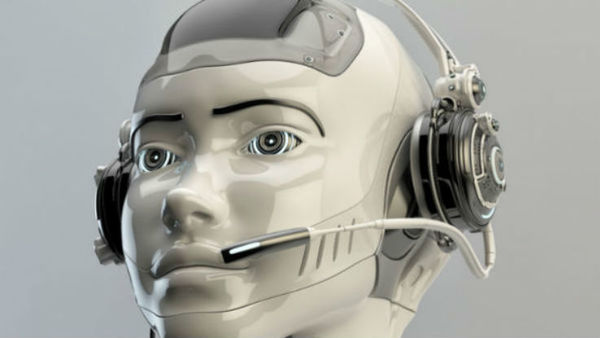 Workers say robots are better at providing unbiased information, maintaining work schedules, problem solving and managing a budget.
Workers say robots are better at providing unbiased information, maintaining work schedules, problem solving and managing a budget.
Move over Michael Scott; workers are actually starting to trust that J.A.R.V.I.S. and maybe even C-3PO could lead The Office better than you. But probably not the malevolent HAL…
That's the gist of Oracle & Future Workplace's AI@Work Study 2019, "From Fear to Enthusiasm." For the report, more than 8,300 HR leaders, managers and workers in 10 countries were surveyed to learn their attitudes toward and behaviors regarding artificial intelligence.
Recommended For You
There's been quite a shift in feelings as more companies implement robotics, automation and other AI technologies. These days, 64% of respondents say they would trust a robot more than their manager and half have turned to a robot instead of their manager for advice. Moreover, the vast majority (82%) think robots can do a lot of things better than their managers.
When asked for specifics, respondents say robots are better at providing unbiased information (26%), maintaining work schedules (34%), problem solving (29%) and managing a budget (26%).
Overall, the majority (65%) of workers are optimistic, excited and grateful about having robot co-workers and nearly a quarter report "having a loving and gratifying relationship."
But don't fire all the human managers just yet: when asked what managers can do better than robots, workers say the top three tasks are understanding their feelings (45%), coaching them (33%) and creating a work culture (29%).
"These differences have important implications for how organizations can get the most value from line managers, as well as how they can best attract, retain and develop talent," the authors write. "For instance, managers who let AI handle more administration-related coordination and control tasks may free up time, mental bandwidth and energy to interact more directly with their employees."
However, concerns about the complexity of AI technology, as well as data security and privacy, present the biggest obstacles to increased adoption of the technology, according to the survey. The majority (71%) of respondents say security concerns prevent them from using AI at work.
"Worries about complexity as well as data security and privacy could be barriers to AI adoption in the workplace," the authors write. "To get the most from AI and machine learning technology, companies must explain how they are using AI ethically as well as offer solutions to address security and privacy concerns.
It's worth the effort, they add, as the use of AI solutions will enable companies to innovate more and create new markets, making them more competitive.
"Your employees are ready to embrace AI," the authors conclude. "Are you moving fast enough to capitalize on the next wave of adoption?"
© 2025 ALM Global, LLC, All Rights Reserved. Request academic re-use from www.copyright.com. All other uses, submit a request to [email protected]. For more information visit Asset & Logo Licensing.








